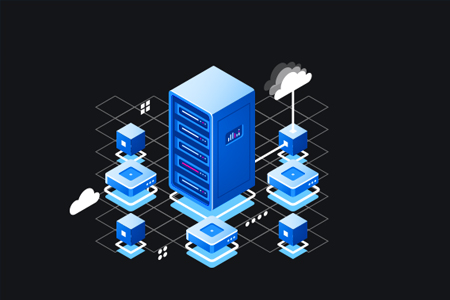Because the difference between the page response time is one second, it will also cause some customer groups to lose the website, so choosing the correct custody product is a vital business decision. At present, cloud servers and independent servers are two very popular products, and they perform well in different use cases.
This article explains the definition of cloud servers and independent servers, and summarizes the advantages and defects of cloud servers and independent servers, thereby analyzing the difference between the two.
Independent server
Independent server is a physical server rented by the company's own business needs. It is usually used to large enterprises that require high -level data security or companies that have high stability and high requirements for server capacity. JTTI is currently launching independent servers in Hong Kong/American computer rooms. In addition to supporting software such as PHP, Perl, Python, and Ruby, it also provides unlimited flow and unlimited cloud storage services.
Independent server advantage
Customization is the most critical advantage of independent servers. Companies that need to handle a large amount of traffic or running complex applications usually find that the cost of cloud servers in independent servers is not mentioned in the face of its unique customization needs.
Network developers and programmers need independent server hardware to create a custom server environment to support complex applications. This includes installing alternative operating systems for network servers, expansion of programming language, enhanced practical programs (such as advanced page cache systems) and the alternative database framework of MySQL.
Java, ASP.NET, Node.js, PHP, and Python developers all need to be completely customized server hardware to build new applications or support online software with specific operation requirements. These can optimize independent servers, thereby supporting high -level network traffic required by e -commerce and streaming media.
Independent server disadvantage
The main disadvantage of independent servers is that under non -platform hosting schemes, system administrators must be responsible for all aspects of network security, including operating systems (OS) and all installed extensions. In addition, the cost of renting remote independent servers may even be higher than buying and configured hardware locally. And it is difficult to copy the fiber optic network in world -class data centers or international custody facilities.
If you don't understand the working principle of the cloud server, the discussion of the two is incomplete. The advantages and defects of the existence of cloud servers will be discussed below:
Cloud Server
Cloud servers can provide similar performance, security and control authority similar to independent servers. However, this product is not a pursuit of physical hardware used alone, but in the shared "virtualization" environment of cloud providers management.
Cloud server advantage
There are various cloud custody services on the market. Although each one is a unique solution for the development of the company and programming teams for the market, the unique advantage of the cloud server is that the pre -installed elastic network server supports and custom stack software provided, and optimizes the CMS website. The CMS website owner supports better overall performance in the cloud server through high -level hardware configuration, SSD storage space, network traffic load balance, multi -layer database, PHP process and file cache, etc., and has achieved better overall performance in the cloud server.

Compared with the virtual host, the cloud server allocates more memory, CPU kernel and I/O processes for the CMS website, and at the same time allows each site to expand according to traffic needs. This ensures that the website can maintain "always online" under any network traffic conditions, so that the loading speed of web pages in normal use conditions is faster.
Cloud server disadvantage
Compared with the independent server plan, the disadvantage of the cloud server is that the system administrator or network developers may not have enough flexibility to modify the stack software installation of the server and cannot build a custom solution. For example, PaaS Cloud Server cannot change the platform software of operating systems or install alternative network servers, such as Nginx, Tomcat, Hadoop, LightSpeed, Lighttpd, etc.

 EN
EN
 CN
CN








